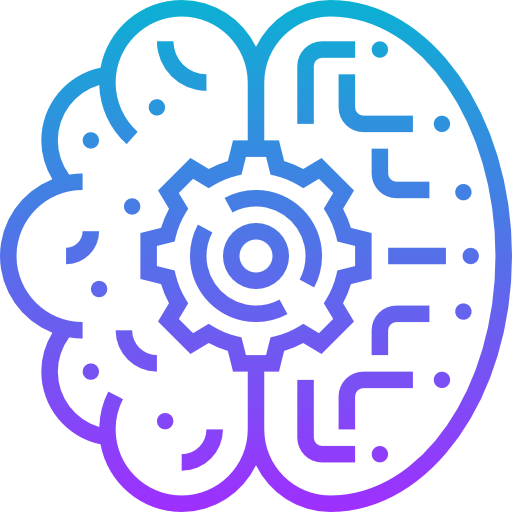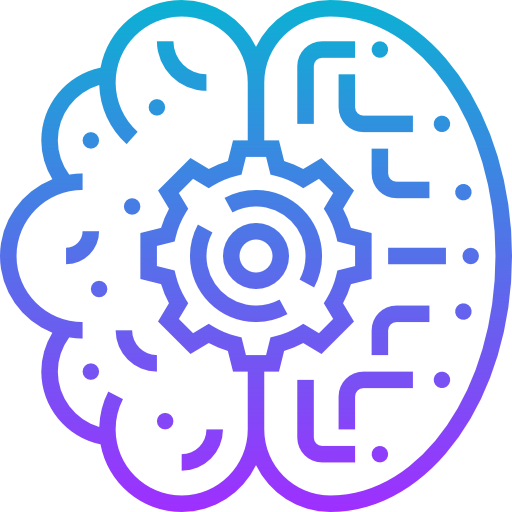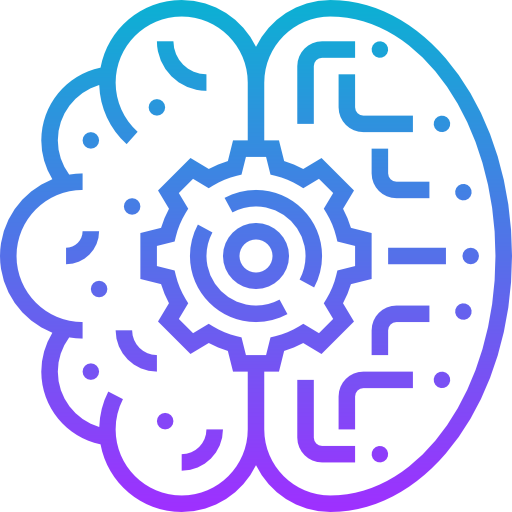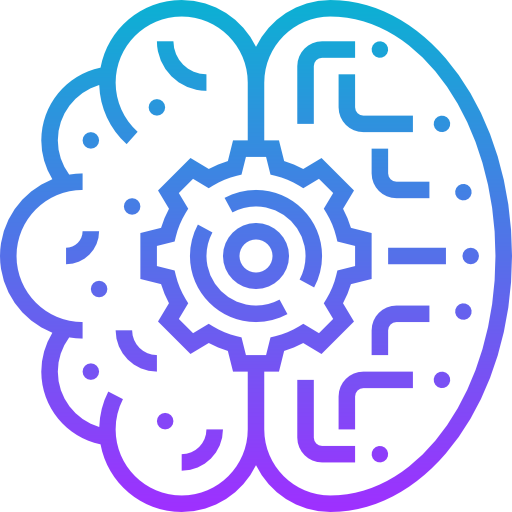How AI Agents Can Revolutionize Administrative Tasks in Hospitals!
Table of Content
As a doctor who also works in IT as a developer, I often find myself at the crossroads of healthcare and technology. During a recent visit to a friend's hospital, the hospital manager casually asked me, "How can AI agents help us automate our hospital's administrative tasks?" This sparked a fascinating conversation about the transformative potential of AI in healthcare, especially for improving patient satisfaction and delivering value-based services.
Here, I’ll walk you through what AI agents are, how they can streamline hospital operations, and why adopting them is essential for improving service quality in the healthcare sector.
What Are AI Agents?
AI agents are software systems capable of performing tasks autonomously by analyzing data, making decisions, and taking actions based on predefined algorithms or machine learning models.
In the context of healthcare, these agents can integrate seamlessly into hospital systems to automate repetitive boring tasks, improve efficiency, and reduce human error.
Think of them as digital assistants that not only follow instructions but also learn and adapt to optimize operations.
How AI Agents Can Help Hospitals
Below is a list of areas where AI agents can bring immediate benefits to hospitals by automating administrative tasks:
1. Staff Scheduling
- Optimization: AI agents can analyze patient load, staff availability, and hospital requirements to create optimized schedules. This ensures that resources are allocated effectively during peak hours.
- Notification: Automatically notifying staff about schedule changes reduces confusion and improves coordination.
2. Data Integration and Reporting
- Data Aggregation: AI agents can pull data from disparate systems like Electronic Medical Records (EMRs), lab reports, and patient feedback forms to create a unified view.
- Real-Time Insights: They can generate real-time reports for hospital administrators, aiding better decision-making.
3. Prescription Refill Reminders
- Patient Satisfaction: By sending timely reminders for prescription refills, AI agents ensure patients adhere to their treatment plans, which improves outcomes and satisfaction.
4. Patient Intake and Registration
- Streamlining Check-Ins: Automating the patient check-in process reduces wait times and enhances the overall patient experience, which increases patient satisfaction.
- Data Verification: AI agents can verify and update patient information, minimizing errors in records.
5. Feedback and Surveys
- Collection and Analysis: Post-treatment surveys collected and analyzed by AI agents provide actionable insights for improving service quality.
- Service Improvement: Feedback trends can highlight gaps in care delivery, enabling hospitals to address issues proactively.
6. Document Management
- Classification and Storage: Automating document classification saves time and ensures secure storage of patient records.
- Information Extraction: Extracting critical information from handwritten notes or scanned documents improves efficiency and reduces errors.
7. Emergency Alerts
- Trend Detection: AI agents can monitor admission rates or vital signs to detect unusual trends, such as an influx of ER cases.
- Critical Notifications: Sending alerts for deteriorating patients or critical lab results ensures timely intervention.
8. Compliance and Audit
- Regulatory Monitoring: AI agents can track compliance with healthcare regulations, helping hospitals avoid penalties.
- Audit Trails: Automating audit processes saves time and ensures transparency.
9. Consent Management
- Digital Efficiency: AI agents streamline the process of obtaining and storing patient consent for procedures or data usage, ensuring compliance with regulations.
10. AI-Powered Chatbots
- Patient Assistance: Chatbots can answer FAQs, help patients navigate hospital facilities, and even book appointments.
- 24/7 Availability: They enhance accessibility, contributing to higher patient satisfaction.
11. Resource Utilization Tracking
- Equipment Monitoring: AI agents can track medical equipment usage to prevent bottlenecks.
- Optimal Utilization: They ensure critical resources like ICU beds and diagnostic machines are used efficiently.
There are more cases and examples that i can count, however these are the most common ones.
Recommendations: Why Open Source Matters
While proprietary AI solutions can offer robust capabilities, open-source AI tools provide flexibility, cost-effectiveness, and customization options.
Open-source platforms like TensorFlow, PyTorch, or Apache Kafka can be used to build tailored AI solutions for hospital needs. These tools ensure that hospitals remain in control of their data, an essential factor for patient privacy and compliance.

By choosing open-source AI tools, hospitals can:
- Reduce Costs: Avoid hefty licensing fees associated with proprietary software.
- Encourage Collaboration: Leverage a community of developers to continuously improve AI models.
- Enhance Security: Customize security features to meet strict healthcare standards.
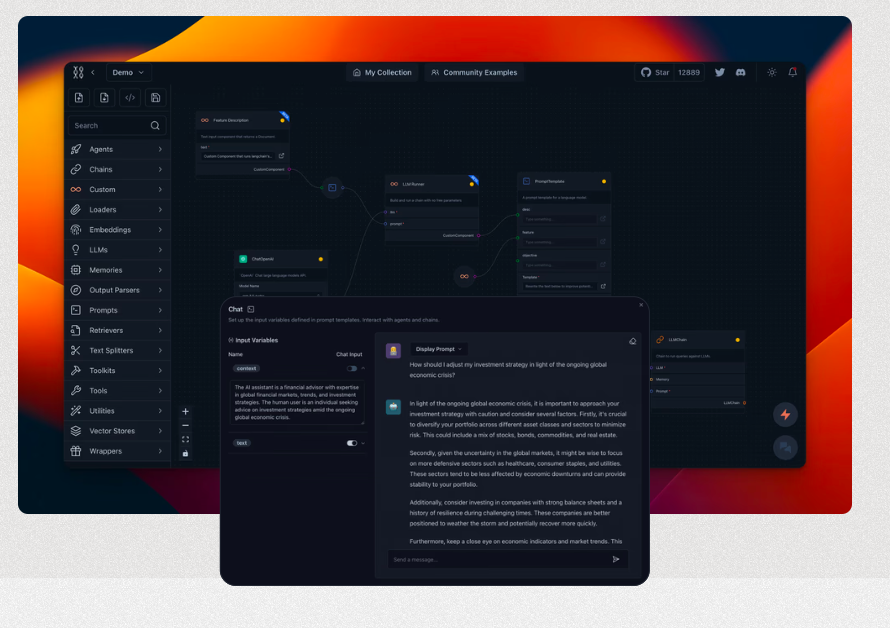

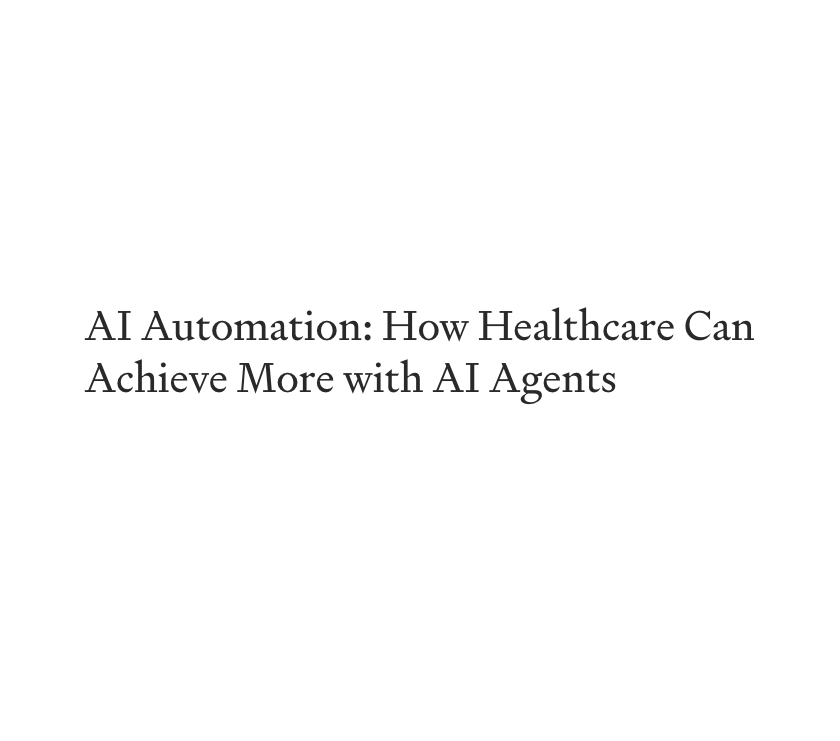
Final Thought
Automating administrative tasks with AI agents is no longer a luxury but a necessity for hospitals striving to deliver value-based services. By adopting AI agents, hospitals can improve operational efficiency, enhance patient satisfaction, and ensure better compliance with regulations.
For hospital managers wondering where to start, consider integrating AI into one or two processes—such as staff scheduling or patient intake—and scale up as you see the benefits. By embracing technology thoughtfully, we can create a healthcare system that prioritizes both quality of care and patient satisfaction.
Further Readings



